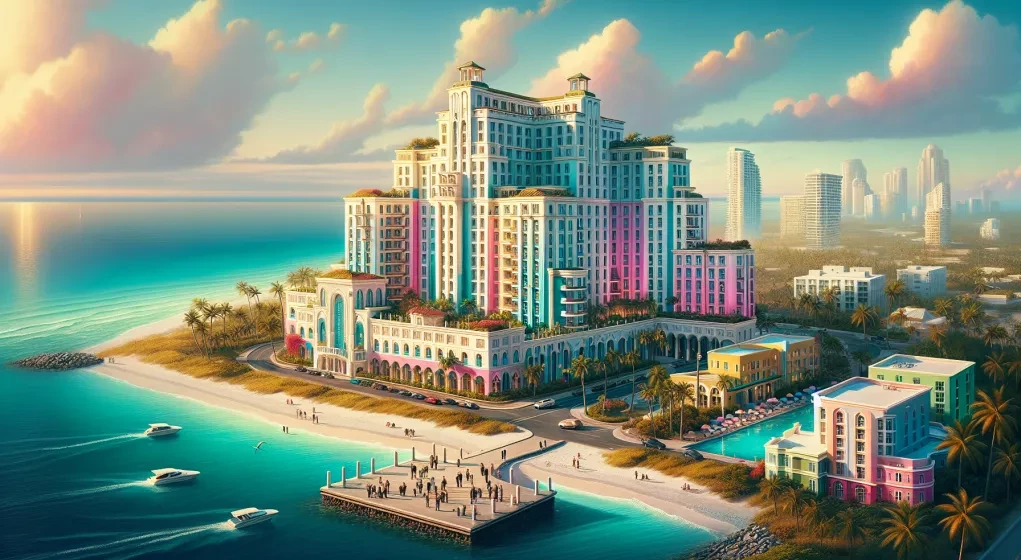In the sunshine-draped corridors of power where Florida’s lawmakers convene, the pathways of ambition and desire are being paved with money and dreams. The year’s legislative docket brims with gaming expansion bills—a high-stakes game fit for the opulent retreats of Miami Beach, where fortunes could be forged with the clink of a slot machine or the flip of a card.
At the epicenter of this unfolding drama is Fontainebleau Miami Beach, a titan of hospitality yearning to broaden its dominion into the realm of casinos. Its owner, Jeffrey Soffer, has laid his cards on the table with a strategic array of financial contributions, funding the campaign coffers of state politicians who might sway the future of gaming in the region.
Campaign finance reports unveil a tapestry of political investments stretching beyond $300,000, entwined in the politics of chance and power. The donor? Real estate developer Jeffrey Soffer, who has infused political action committees with the fortune’s favor, bet on lawmakers with the clout to legislate dreams into reality.
Campaign contributions have flowed like champagne at a victory gala, showering nine Republicans of Miami-Dade County’s delegation with generosity’s glow. All this occurs in the shadow of the two-month legislative session that could transform Miami into a mosaic of casino hotels—long desired but elusive as a gambler’s mirage.
The current legislative proposals fire a starting gun for those holding greyhound racing permits—like Soffer’s Big Easy Casino—to shift their operations, pari-mutuel wagering, and casino indulgences to new destinations, a beacon for the Miami gambling oasis.
The stakes are high, with past attempts by Soffer and Trump National Doral to clasp gaming licenses in their grasp fizzling into the humid air. Miami’s allure as a casino market sparkles with potential, untapped and tantalizing to the industry’s titans. New York might have its skyscrapers, but Miami Beach, autonomous and distinct, could rival its northern brethren as a bastion of bettors—if not for local laws staunchly prohibiting casinos since 2017.
John Sowinski of No Casinos, a sentinel against the spread of gambling establishments, stands with the citizens who, time and again, repel these invasions of leisure and luxury. A champion of Amendment 3, which mandates voter approval for any gambling expansion, they watch warily as new efforts emerge, only to bolster their resolve.
Even with political maneuvering, progressing on a Miami Beach casino would trigger a clash with the Seminole Tribe, overlord of state gaming, whose Hard Rock empire could aggressively defend its dominion.
Meanwhile, Fontainebleau and Big Easy Casino’s largesse endures, with $50,000 here, $25,000 there—the Republican Party of Florida and the state’s Senatorial Republican Campaign Committee amongst the beneficiaries. State representatives’ PACs, too, find themselves $15,000 richer, as do various other Republican-backed entities.
Jeffrey Soffer, not one to shy away from the political tableau, has deployed an impressive $2.5 million since his acquisition of the Big Easy Casino in 2018, courting favor with figures such as Gov. Ron DeSantis. The allure of the felt green tables and spinning slots in Miami Beach is a siren song, calling out to those who hold the keys to the future of Florida’s gaming landscape.






